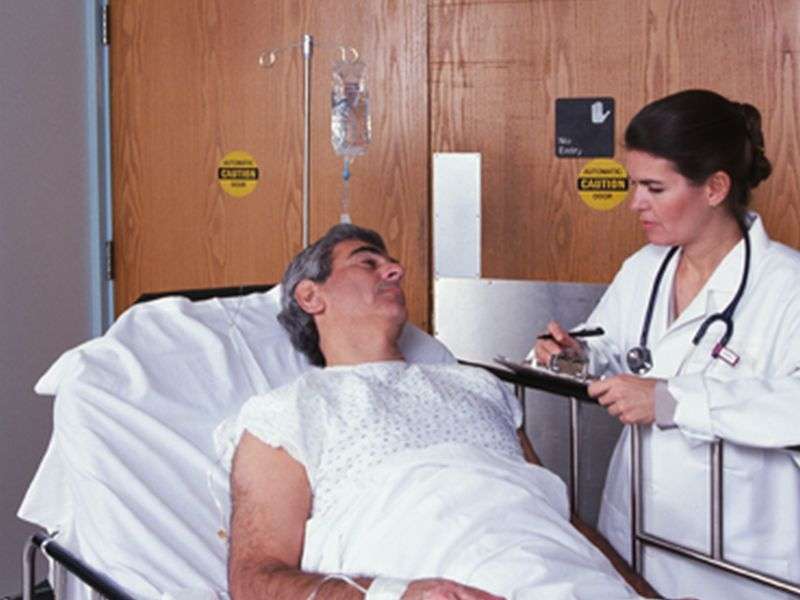The healthcare landscape for seniors is evolving rapidly. Gone are the days of lengthy hospital stays that often felt more like a disruption to daily life than a path to recovery. Today, there’s a growing emphasis on shorter, more efficient hospital stays tailored to the unique needs of older adults. This shift reflects advancements in medical technology, a focus on preventative care, and a commitment to empowering seniors to maintain their independence.
This article delves into the reasons behind these shorter senior hospital stays, exploring the factors contributing to this positive change. We’ll examine how improved healthcare advancements, a focus on home-based care, and a dedication to senior well-being are shaping the future of senior healthcare.
Senior Hospital Stays
While hospitalizations remain necessary for seniors facing serious health challenges, the average length of stay has significantly decreased in recent years. This trend is driven by several key factors, including improved diagnostic tools that allow for quicker and more accurate diagnoses, leading to faster treatment initiation. Additionally, advancements in surgical techniques and pain management have contributed to shorter recovery times, enabling seniors to return home sooner.
The shift towards shorter hospital stays also reflects a growing understanding of the potential negative impacts of prolonged hospitalization on seniors. Extended stays can lead to muscle weakness, cognitive decline, and increased risk of infections. Recognizing these risks, healthcare providers are actively working to minimize hospital time while ensuring patients receive comprehensive care.
Shorter Discharges

Shorter discharges for seniors often involve a carefully coordinated plan that addresses their individual needs upon returning home. This may include:
- Home Health Care: Nurses, therapists, and aides can provide in-home support with medication management, wound care, physical therapy, and other essential tasks.
- Assistive Devices: Walkers, canes, wheelchairs, or other mobility aids can help seniors navigate their homes safely and independently.
- Medication Management: Pharmacists can work with seniors to ensure they understand their medications, potential side effects, and proper dosage instructions.
These support systems aim to bridge the gap between hospital care and home life, facilitating a smooth transition and promoting successful recovery.
Improved Healthcare Advancements
Technological advancements have revolutionized senior healthcare, enabling faster diagnoses, less invasive treatments, and more effective monitoring. Some key examples include:
- Telemedicine: Seniors can consult with doctors remotely via video conferencing, reducing the need for in-person visits and facilitating timely access to medical advice.
- Wearable Technology: Smartwatches and fitness trackers can monitor vital signs, activity levels, and sleep patterns, providing valuable data to healthcare providers and enabling early detection of potential health issues.
These advancements empower seniors to manage their health proactively and receive personalized care tailored to their specific needs.
Focus on Home-Based Care

The shift towards home-based care recognizes the importance of familiar surroundings for senior well-being. Home environments often provide a sense of comfort, security, and independence that can be difficult to replicate in a hospital setting.
By prioritizing home-based care, healthcare providers aim to:
- Reduce Hospital Readmissions: Providing comprehensive support at home helps seniors manage their conditions effectively, minimizing the risk of complications requiring readmission.
- Promote Independence: Home-based care empowers seniors to maintain their autonomy and continue participating in activities they enjoy.
- Enhance Quality of Life: Seniors often report higher levels of satisfaction and well-being when receiving care in their own homes.
Senior Well-being
The ultimate goal of shorter senior hospital stays is to improve overall well-being. By prioritizing a holistic approach that addresses physical, emotional, and social needs, healthcare providers aim to:
- Minimize Disruption: Shorter stays reduce the stress and anxiety associated with prolonged hospitalization, allowing seniors to focus on recovery.
- Promote Independence: Empowering seniors to manage their health at home fosters a sense of control and self-efficacy.
- Enhance Social Connections: Home-based care allows seniors to maintain social connections with family and friends, which is crucial for mental well-being.
Conclusion
The trend towards shorter senior hospital stays reflects a positive shift in healthcare priorities. By embracing advancements in medical technology, prioritizing home-based care, and focusing on senior well-being, we can ensure that older adults receive the most effective and compassionate care possible. This approach not only improves health outcomes but also empowers seniors to live fulfilling lives with greater independence and dignity.



